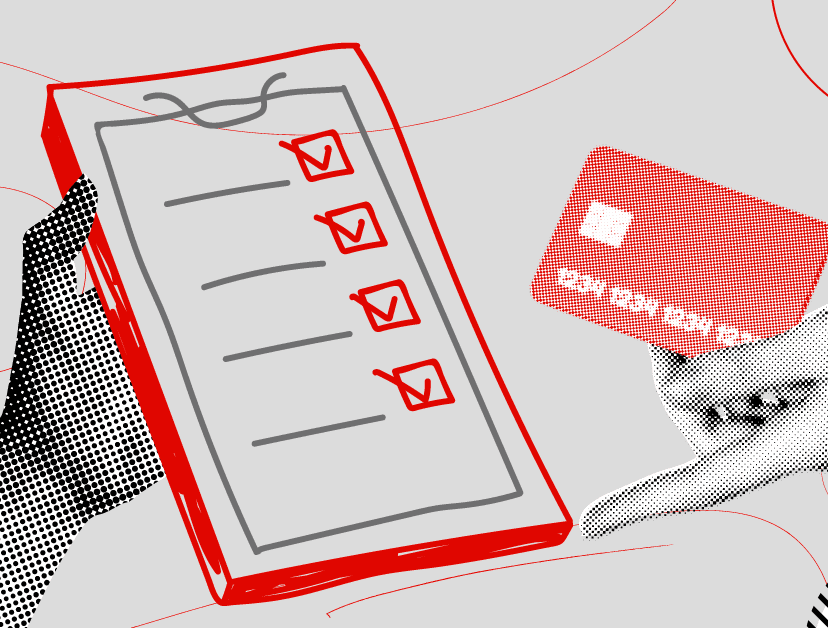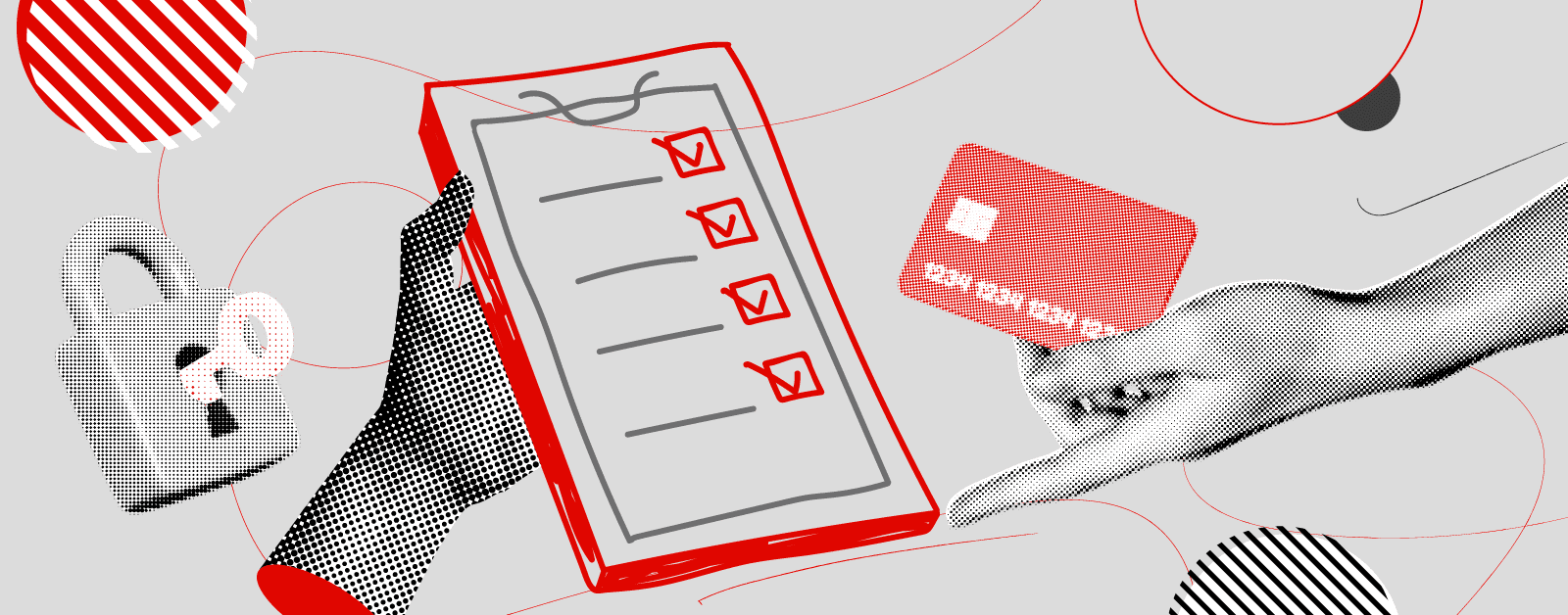
Ecommerce Security Checklist for Your B2B Online Store
Laura
Buzin

If you are a B2B business, selling your products online via ecommerce presents numerous advantages, including expanded market reach, 24/7 availability, better customer experience, and more effortless scalability.
These benefits are a big reason why 71% of all B2B companies currently offer ecommerce capabilities, and also why Gartner predicts that 80% of all B2B transactions will happen via online means by 2025.
However, digital ecommerce also exposes your business to unique risks. B2B ecommerce platforms are prime targets for cybercriminals, who exploit vulnerabilities in these tools to carry out data breaches, fraud, and service disruptions.
Even one of these security incidents can have devastating effects on your business, including severe financial losses, legal liabilities, and long-term damage to its reputation. In fact, IBM reports that the average global cost of a data breach in 2024 was a staggering $4.88 million.
In this guide, we’ll highlight some of the common B2B ecommerce security threats and share a security checklist to help you safeguard your online store and business.
What is B2B Ecommerce Security?
B2B ecommerce security refers to the measures and practices put in place by B2B businesses to protect their online transactions, data, and digital assets from a wide range of cyber threats.
- Specifically, B2B ecommerce security aims to:
Safeguard sensitive information (e.g., payment details and personal data). - Prevent unauthorized access to systems and databases.
- Ensure the integrity and availability of the online store.
- Build trust with customers by creating a secure shopping environment.
Why is Ecommerce Security Important for B2B Businesses?
Strong ecommerce security practices are crucial for B2B businesses for several reasons:
Larger and High-value Transactions
B2B transactions tend to involve larger sums of money than B2C purchases. That makes B2B businesses an attractive target for criminals since attacks can result in higher financial gains.
Sensitive Business and Customer Data
B2B ecommerce platforms handle vast amounts of confidential business and financial data, including customer details, payment information, transaction records, and even intellectual property.
Poor security practices could lead to a data breach, exposing this information to malicious actors who can use it to commit financial fraud, identity theft, or even corporate espionage.
Complex Integrations
B2B ecommerce platforms often integrate with multiple systems, such as ERPs, CRMs, and inventory management tools, to streamline operational workflows. Unfortunately, the more integrated a B2B platform is, the bigger the attack surface — each new integration introduces an additional point of vulnerability.
For instance, a weakness in a single third-party application could provide malicious actors with a gateway to your entire network, enabling them to compromise multiple systems.
Long-Term Client Relationships
B2B businesses thrive on long-term contracts and trust-based relationships with clients. These relationships are built on the expectation of consistent, reliable, and secure service.
Security breaches can shatter this trust, resulting in clients reconsidering partnerships and even switching to competitors. Plus, rebuilding the damaged reputation after the fact can be costly and time-consuming.
Business Continuity and Compliance
Cyberattacks can lead to operational disruptions, downtime, and lost productivity, all of which can negatively impact a B2B business. A strong security posture ensures business continuity by minimizing the risk of such disruptions.
Compliance with Data Protection Regulations
B2B businesses are subject to various data privacy and security regulations, such as the Payment Card Industry Data Security Standard (PCI DSS) and the General Data Protection Regulation (GDPR).
Non-compliance with these regulations can result in hefty fines, legal action, and loss of business licenses. For instance, a severe GDPR violation can lead to a monetary fine of up to €20 million (US$21.8 million) or 4% of global annual turnover, whichever is higher.
Competitive Advantage
Demonstrating a commitment to ecommerce security can set your business apart. Customers are more likely to trust and engage with a brand that prioritizes data protection.
What are the Most Common Types of Cyber Threats?
Understanding the different types of threats that ecommerce platforms face is the first step in safeguarding your online store. Here are some of the most common cyber threats targeting B2B ecommerce sites:
Phishing
Phishing involves cybercriminals posing as legitimate entities to trick employees or customers into divulging sensitive information, such as login credentials or payment details. These attacks often take the form of fake emails, messages, or phone calls and can lead to unauthorized access to your systems.
Malware Infections
Malware refers to malicious software such as viruses, spyware, and ransomware designed to infiltrate, damage, or take control of your systems.
For instance, ransomware encrypts your data and demands payment for its release, while spyware secretly monitors your activities to steal sensitive information. Malware can be introduced through malicious downloads, infected email attachments, or compromised third-party plug-ins.
SQL Injections
SQL injections involve using malicious code to compromise the queries an application or website makes to its database. This potentially allows the attacker to access, modify, or delete private data such as customer information, order details, or payment records.
Distributed Denial-of-Service (DDoS) Attacks
In a DDoS attack, cybercriminals overwhelm your website with traffic from multiple sources. This can cause your website to crash, thus rendering it inaccessible to legitimate users. The resulting downtime can lead to lost sales, frustrated customers, and reputation damage to your brand.
Brute Force Attacks
Brute force attacks involve attackers using automated tools repeatedly to guess passwords or authentication credentials until they gain access. Once inside, they can carry out a wide range of malicious activities, from data theft to system sabotage.
Man-in-the-Middle (MITM) Attacks
MITM attacks occur when attackers intercept or eavesdrop on communications between two parties (e.g., a customer contacting support on your platform) through techniques like Wifi eavesdropping or DNS spoofing.
They can then steal sensitive information or even manipulate the data that’s being transmitted, often without either party realizing that a breach has occurred.
Cross-Site Scripting (XSS)
XSS attacks occur when cybercriminals inject malicious scripts into a website, which are then executed by unsuspecting users. These scripts can steal data, hijack user sessions, or perform unauthorized actions on behalf of the user.
Insider Threats
Not all ecommerce security threats come from external actors; some originate internally. Employees, contractors, or partners with access to your systems might inadvertently leak sensitive data or intentionally sabotage your operations.
How to Secure an Ecommerce Website
B2B commerce businesses can secure their online stores through several measures, such as choosing a secure ecommerce platform, implementing multi-factor authentication (MFA), updating software and plug-ins, and conducting regular security audits.
Choose a Secure Web Host and Ecommerce Platform
Your hosting provider is responsible for the infrastructure that supports your website, making it a key player in your overall security strategy. Look for a hosting provider that prioritizes security and offers features such as DDoS protection, automatic backups, and 24/7 monitoring.
Equally important is selecting an ecommerce platform that’s secure. For example, k-ecommerce’s ERP-integrated B2B platform has an extensive range of security features to keep your online store secure.
These include:
- Employee account and permission management, which allows you to restrict access to sensitive areas of your store based on user roles.
- Admin two-step authentication, which prevents unauthorized backend access to your system.
- Malware protection to detect and block malicious software.
Implement Multi-factor Authentication
MFA requires users to provide two or more forms of verification before gaining access to an account. For example, in addition to entering a password, users might need to input a one-time code sent via SMS, use an authentication app, or provide biometric data like a fingerprint or facial recognition. That adds an extra layer of security and makes it harder for criminals to breach your systems.
Implement MFA for both customers and internal staff. For customers, it helps protect their accounts from unauthorized access even if their passwords are compromised. For employees, it ensures that only authorized personnel can access sensitive areas of your ecommerce platform, such as admin dashboards or financial records.
Update Software, Plug-ins, and Other Third-Party Integration Regularly
Outdated software, including your ecommerce platform, plug-ins, and other third-party integrations, may contain vulnerabilities that criminals can exploit. To stay safe, establish a routine for regularly updating your systems. Where possible, enable automatic updates. Finally, remove any unused plug-ins or software to minimize vulnerabilities.
Secure Your Payment Gateways
To protect sensitive payment information, avoid storing it on your servers. Instead, leverage PCI-DSS-compliant payment processors, like k-ecommerce, that offer advanced payment security features to ensure transactions are processed securely.
Conduct Regular Security Audits
A security audit involves a thorough examination of your website’s infrastructure, code, and processes. That might include reviewing your server configuration, checking for outdated software, testing for SQL injection and cross-site scripting (XSS) vulnerabilities, and evaluating access controls.
You can conduct security audits internally or hire a third-party cybersecurity firm. Either way, the primary goal is identifying and addressing vulnerabilities before attackers can exploit them. Additionally, security audits help establish the effectiveness of your current security protocols and whether you are staying compliant with regulations like GDPR and PCI-DSS.
Use SSL Certificates
An SSL (Secure Sockets Layer) certificate is a must for any ecommerce website. SSL encrypts data transmitted between your website and user devices or browsers, protecting sensitive information like login credentials, payment details, and personal data from interception by malicious third parties.
When you install an SSL certificate, your website URL will display “https://” instead of “http://,” and a padlock icon will appear in the browser’s address bar. These visual cues signal to customers that your site is secure, and that boosts their confidence and trust in your brand.
Many top hosting providers and ecommerce platforms, like k-ecommerce, offer SSL certificates as part of their services.
Monitor for Suspicious Activity
Many cyberattacks often go unnoticed until significant damage has already been done. To avoid this, use security monitoring tools to keep an eye on your website’s activity and set up alerts for any anomalies, such as multiple failed login attempts or unexpected changes to critical files.
For example, if you notice a sudden spike in traffic from a single IP address, it could indicate a DDoS attack in progress. Similarly, repeated login attempts from an unknown location might suggest a brute-force attack.
Train Your Team on Best Practices
Educating your employees on security best practices can help create a security-conscious culture within your organization.
Training should cover essential topics like recognizing phishing emails, managing passwords securely, and handling customer data responsibly. Make sure to also conduct refresher courses to keep your team informed about the latest threats and updates to your security policies.
Secure Third-Party Integrations
Conduct a thorough security assessment before integrating any third-party tool to ensure it complies with industry standards and does not expose your website to unnecessary risks. Read online reviews from fellow businesses and assess the vendor’s overall reputation.
Once installed, limit any unnecessary permissions and monitor their activity for any signs of suspicious behavior.
Back up Your Data Regularly
Regular backups ensure that you can quickly recover your data and resume operations in the event of a breach or technical failure.
Schedule automatic daily or weekly backups and store them in secure, offsite locations like cloud storage or external servers. Also, regularly test your data recovery procedures to ensure that you can quickly restore your systems and data.
Implement Strong Password Policies
Weak or reused passwords are a common entry point for cybercriminals. To protect your ecommerce website, enforce strong password policies for customers and employees. Require passwords to include a mix of uppercase and lowercase letters, numbers, and special characters, and set a minimum length of at least 12 characters.
Additionally, encourage the use of password managers, which can generate and store complex passwords securely. For employees, you can also consider implementing periodic password changes and prohibiting the reuse of old passwords.
Employ Web Application Firewalls (WAF)
A WAF filters and monitors HTTP traffic between your website and the internet, blocking malicious requests before they can reach your server. This helps protect against common threats like SQL injections, cross-site scripting (XSS), and DDoS attacks.
Some hosting providers offer built-in WAFs, or you can install a third-party solution. When shopping for WAF solutions, look for those that provide real-time monitoring, customizable rules, and automatic updates to stay ahead of emerging threats.
Final Thoughts: B2B Ecommerce Security Checklist
Taking proactive steps to protect your online store can prevent financial losses, legal penalties, and damage to your brand’s reputation. Use our ecommerce security checklist to build a strong defense against cyber threats and create a safe environment for your customers and business operations.
k-ecommerce provides a reliable foundation for building a secure B2B online store. With advanced security features like employee account and permission management, two-step authentication, role-based approvals, and malware protection, k-ecommerce ensures your business is equipped to handle modern cybersecurity challenges.
Ready to see how k-ecommerce can help you create a safer, more resilient online business? Schedule a free demo today.


